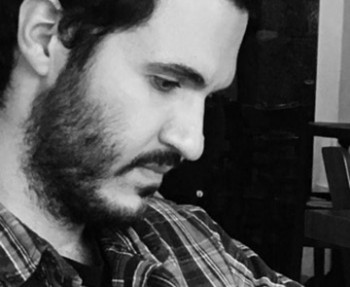A child counts hashtags
And he lost in the count
It seems that there are now more hashtags than stars, so rightfully the 'child' started counting them. How many hashtags did you use on the photo you posted on social media? It is a fact that technology has invaded in all aspects of our lives and changed them dramatically. Especially in recent years, the changes are quite intense and sometimes an effort is required, especially by older people, to follow the new life trend. Most of our daily activities have gone digital from paying bills, having coffee to networking with other people. Social media is widely used by all age groups and the user adjusts his profile and searches according to his needs.
A trend that dominates social media is the #hashtag. The word hashtag comes from the union of the words hash and tag, i.e. the symbol # and a tag (word). According to Wikipedia, the use of hashtags was first proposed by Chris Messina in a tweet in 2007. Initially, it did not have enough followers but quickly spread as a trend and became widely known. The hashtag is a type of "label" and in recent years its use has evolved into a science as there are various rules that the user must follow in order to get the desired result. A hashtag can give more value to a publication because it shows what it refers to.
But have we gone too far? I also use hashtags but in moderation(?). Recently I was writing a text with paper and pen (like the old days) and out of habit I went to write #… What's up? Social media seems to be seriously damaging people's health, with scientists sounding the alarm. Many experts even argue that the internet is the drug of the 21st century because a very large part of the population is addicted and needs the help of experts.
When social media use, which is usually excessive, is associated with an increased risk of anxiety disorder, depression, and reduced self-esteem and self-image. In most apps, users upload photos daily, which results in comparing them to other people, which seems to destroy their psychology because it forces them to compare themselves to unrealistic, edited photos that do not correspond to reality.
In addition, social media use affects sleep quality as, according to research, it appears that one in five young people wake up at night to check messages on social media. Also, victims of bullying through social media (cyberbullying) are a fairly common phenomenon. Those who spend more than 2 hours a day connected to these media are more likely to report high levels of psychological burden, depression, anxiety and suicidal ideation. In addition to the negatives of the excessive use of social media, the alienation of human relationships, the alienation from the friendly and family environment and the adaptation to a virtual environment.
But is the virtual world not so virtual? Social networking hides several risks especially for younger users, such as children and teenagers. When a photo or video is published online it can be freely copied, modified, recycled by any user and online friend. This results in the virtual world negatively affecting the everyday and real life of users, creating insecurities, oppression and anxiety as personal data and information become public.
Of course, there is another side to the use of social media as they can be used as a tool for immediate information and entertainment. The positives include the fast communication with other people, the purchase and promotion of products and services and the general facilitation of the daily life of the users.
I think that the use of social media would be good to be done with #moderation and #prudence, remaining active and not passive users.

 English
English
 Ελληνικά
Ελληνικά Русский
Русский
 Original Article Posted by
Spyros Papapetros
Original Article Posted by
Spyros Papapetros






